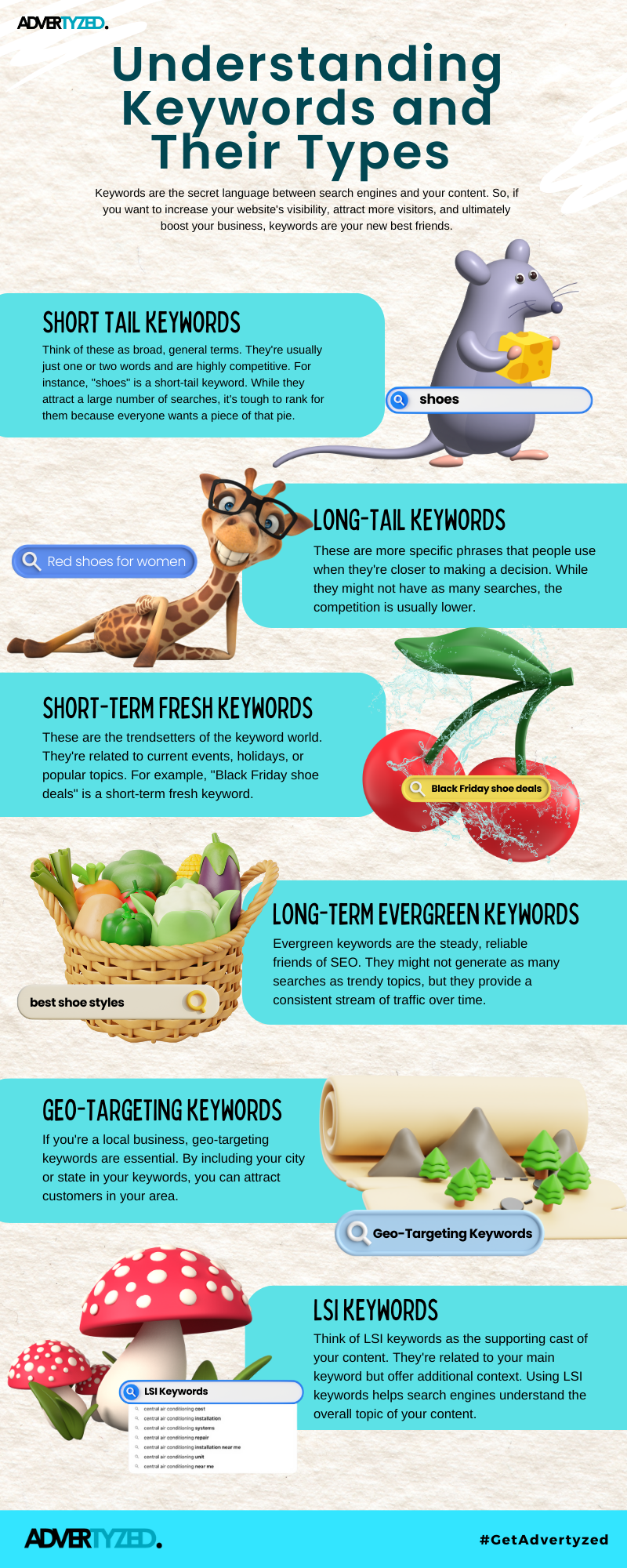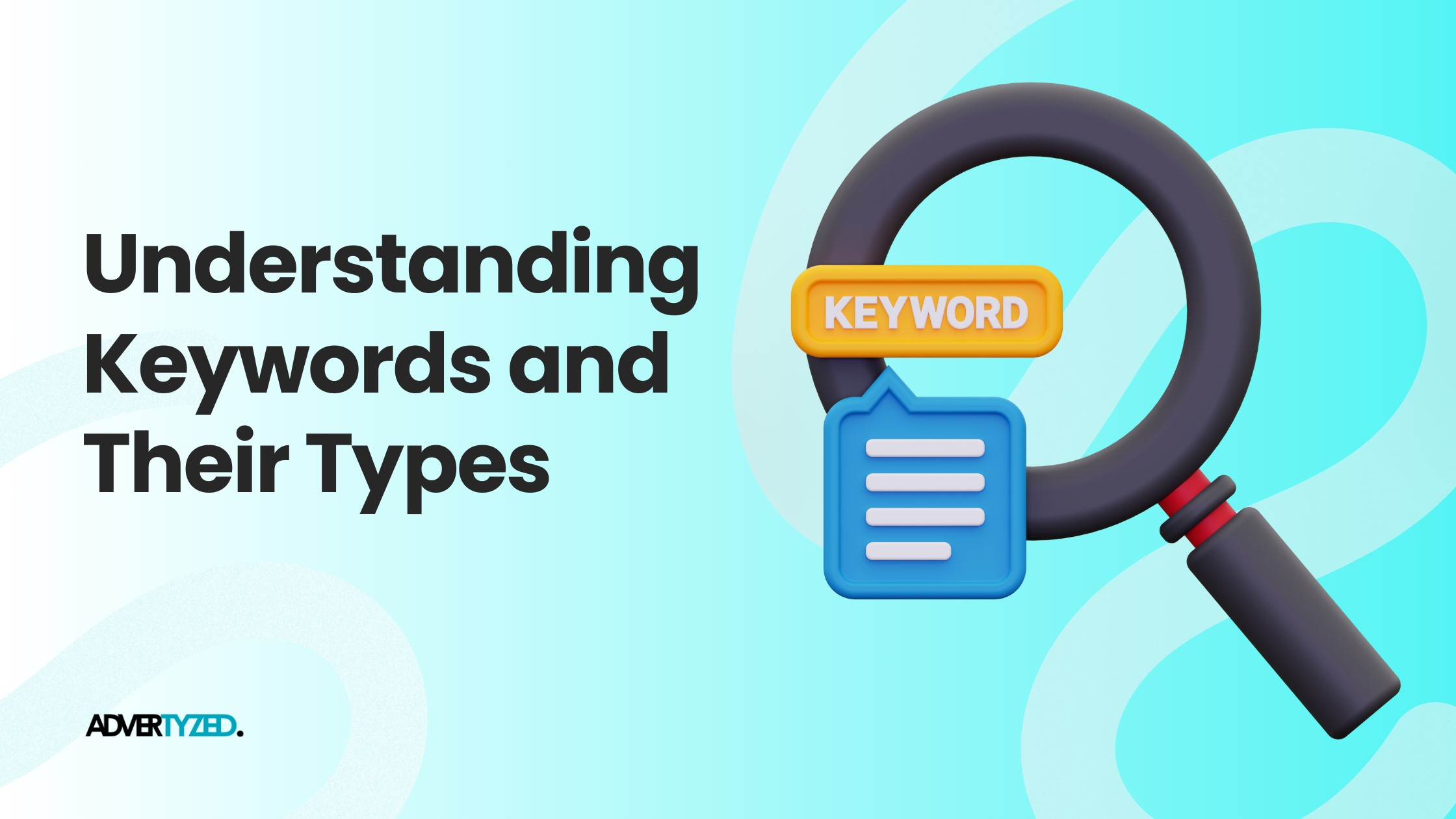Ranking content on SERP is the key to gaining organic traffic and high-quality leads. Why? Because most high-profile clients avoid ads and work with agencies that rank against their search terms.
Ranking high on search engines is a trust signal for high-ticket clients because it helps them distinguish your business from the rest. Since ranking takes a lot of time and effort, clients believe if you’ve worked on your online profiling, you’d work on theirs as well.
Keyword integration is an important part of writing content that ranks. And search engines like Google, love content that ranks on its own and has high-quality value-added content. With that said, let’s understand keywords and their types.
What are Keywords and their Different Types?
Keywords are the secret language between search engines and your content. They’re the words or phrases people type into Google (or other search engines) when they’re looking for something. Think of them as the bridge connecting your audience to your website.
Why are keywords so important? Well, imagine you’re looking for a new pair of shoes. You’d probably type something like “women’s red sneakers” into Google, right? If a shoe store has optimized their website with these keywords, there’s a good chance their site will pop up in your search results. That’s the power of keywords.
By using the right keywords, you’re telling search engines what your content is about. This helps them understand your website better and show it to people who are interested in what you offer. Not only that but when writing for SEO, keywords ensure that the people who find your website are interested in what you have to say. It’s like attracting the right kind of customers to your store.
So, if you want to increase your website’s visibility, attract more visitors, and ultimately boost your business, keywords are your new best friends. But before you begin writing for SEO and churning out content full of keywords, first learn about its different types and their specific purposes.

Keyword Types and Their Purposes
Keywords are like different-sized blocks that shape the structure of your content. Each type has its unique role in helping search engines classify, understand, and rank your website.
- Short-Tail Keywords
Think of these as broad, general terms. They’re usually just one or two words and are highly competitive. For instance, “shoes” is a short-tail keyword. While they attract a large number of searches, it’s tough to rank for them because everyone wants a piece of that pie.
- Long-Tail Keywords
These are more specific phrases that people use when they’re closer to making a decision. Instead of just “shoes,” someone might search for “women’s red running shoes size 8.” While they might not have as many searches, the competition is usually lower, and the people who find your content are more likely to be interested in buying.
- Short-Term Fresh Keywords
These are the trendsetters of the keyword world. They’re related to current events, holidays, or popular topics. For example, “Black Friday shoe deals” is a short-term fresh keyword. They can bring in a lot of traffic, but it’s important to remember that they’re temporary.
- Long-Term Evergreen Keywords
Evergreen keywords are the steady, reliable friends of SEO. They’re about topics that never go out of style, like “how to tie your shoelace” or “best shoe styles.” They might not generate as many searches as trendy topics, but they provide a consistent stream of traffic over time by sharing valuable information. In addition, long-term evergreen keywords are a part of the buyer’s journey which starts by collecting information. For instance, if you put this example on a high-ticket purchase such as real estate or CRM system, it’ll be safe to say that buyers tend to make a purchase through long-term evergreen keywords since they’re information-friendly.
- Geo-Targeting Keywords
If you’re a local business, geo-targeting keywords are essential. By including your city or state in your keywords, you can attract customers in your area. For example, “best shoe store in New York City” is a geo-targeted keyword.
- LSI Keywords
Think of LSI keywords as the supporting cast of your content. They’re related to your main keyword but offer additional context. For instance, if your main keyword is “shoes,” LSI keywords might include “sports,” “outfit,” or “fashion.” Using LSI keywords helps search engines understand the overall topic of your content.
for more details on keywords and their types, you can check out our complete SEO guide for beginners.
Advertyzed! Your Go-to SEO Partner!
Advertyzed has been in the content writing game for over 15 years and we’ve delivered more than 17,000 clients across the US. Our go-to writing strategy is to understand our client’s brief and schedule a call before starting content. We make sure you get your first draft as soon as possible and make changes if required. Once we’ve set the tone and understood your work, our content deliveries are fast and error-free. If you’re looking for SEO content or keyword research, check out our SEO service page.



